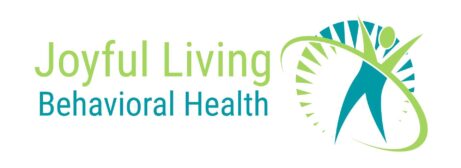Dialectical Behavior Therapy in Eugene OR

Do you consistently feel your mind is being pulled in a hundred different directions at once? Do you have a hard time handling your emotions? Does this cause any problems in your relationships? If you answered “yes” to these questions, Joyful Living Behavioral Therapy in Eugene, Oregon, can help.
We offer Dialectical Behavior Therapy (DBT) for those struggling with emotional regulation, anxiety, or borderline personality disorder. Through individual sessions and skills training, we equip our clients with practical tools to reduce distress, increase emotional resilience, and navigate challenging situations more effectively. We do this in a compassionate, supportive environment, where clients feel comfortable and safe.
The Four Components of DBT
Dialectical Behavior Therapy focuses on providing therapeutic skills in four key areas. These include:
Mindfulness
Mindfulness encourages individuals to stay fully present in the moment without judgment. This skill is vital in helping individuals become more aware of their emotions, thoughts, and behaviors. By practicing mindfulness, individuals can focus on the here and now, which helps reduce impulsivity and emotional reactions to stress.
Distress Tolerance
Many people try to avoid or suppress negative emotions, but Dialectical Behavior Therapy teaches the importance of increasing one’s tolerance to distress. Distress tolerance skills help individuals accept and endure emotional pain rather than avoiding or reacting to it. These techniques are crucial in managing crises and reducing the likelihood of engaging in harmful behaviors as a coping mechanism.
Emotion Regulation
Dialectical Behavior Therapy also offers strategies to help individuals understand and manage deep emotions that often lead to disruptive behaviors or decision-making issues. Emotion regulation involves recognizing emotional triggers, reducing vulnerability to being overwhelmed by emotions, and learning how to shift negative emotional states into more manageable and constructive ones.
Interpersonal Effectiveness
Building healthy relationships is essential for overall well-being. DBT’s interpersonal effectiveness skills help individuals communicate more assertively and confidently while maintaining respect for themselves and the integrity of their relationships. These techniques foster healthier interactions by teaching clients how to set boundaries, express their needs, and handle conflicts without damaging relationships.
When Dialectical Behavior Therapy Is Used
At Joyful Living in Eugene, Dialectical Behavior Therapy is used to help individuals find ways to manage their negative emotions, so they feel more balanced, in control, and able to interact respectfully and successfully with friends, romantic partners, and family members. Dialectical Behavior Therapy was designed originally to treat those with borderline personality disorder. However, since then, studies show that DBT can effectively treat those with:
- Anxiety
- PTSD
- Depression
- Substance abuse
- Bipolar disorder
- Eating disorders
DBT is also effective in reducing self-harming behaviors, suicidal ideation, and self-destructive tendencies by helping individuals build tolerance to distress and replace harmful coping mechanisms with healthier alternatives. In addition, Dialectical Behavior Therapy has shown positive outcomes in treating individuals with mood disorders, anger management issues, and chronic feelings of emptiness or instability.
What to Expect With DBT
Dialectical Behavior Therapy (DBT) blends individual therapy and skills group sessions to provide comprehensive support. In one-on-one therapy, clients work closely with a trained therapist to develop essential life skills, overcome challenges, and receive personalized guidance. Skills group sessions offer a collaborative environment where individuals can practice DBT techniques, gain real-world application, and benefit from shared support and encouragement.
Frequently Asked Questions About Dialectical Behavior Therapy
Dialectical Behavior Therapy helps individuals manage emotions, reduce distress, and improve relationships. Whether you’re new to DBT or considering it as part of your mental health journey, you may have some questions about how it works and what to expect. Below, we’ve answered a few of the most common ones about Dialectical Behavior Therapy to help you better understand its benefits and how it can support your well-being.
How is DBT Different From Other Types of Therapy?
Unlike traditional talk therapy, DBT incorporates mindfulness and behavioral techniques to promote both acceptance and change. It follows a structured approach that includes individual therapy, skills training groups, and coaching to help clients apply DBT strategies in real-life situations.
Who Can Benefit From DBT?
DBT was initially developed for individuals with borderline personality disorder (BPD), but it is also highly effective for people struggling with anxiety, depression, PTSD, bipolar disorder, eating disorders, substance abuse, and self-harming behaviors.
How Long Does DBT Take?
The length of treatment varies depending on individual needs, but Dialectical Behavior Therapy is typically structured as a six-month to one-year program. Many clients continue therapy beyond this period for continued growth and reinforcement of skills.
What Happens in a DBT Session?
DBT consists of both individual therapy and skills group sessions. Individual sessions focus on personal challenges and applying DBT techniques, while skills groups teach practical tools for emotion regulation, distress tolerance, interpersonal effectiveness, and mindfulness.
Can DBT Help With Self-Harm and Suicidal Thoughts?
Yes. Dialectical Behavior Therapy has been shown to significantly reduce self-harm and suicidal ideation by helping individuals develop healthier coping mechanisms, build distress tolerance, and regulate emotions in a more constructive way.
How Do I Start DBT at Joyful Living in Eugene?
If you’re interested in DBT, contact Joyful Living Behavioral Therapy in Eugene, OR, to schedule a consultation. Our experienced therapists will help determine if DBT is right for you and guide you on your journey toward emotional balance and personal growth.
Finding a DBT Therapist in Eugene
If you are interested in exploring Dialectical Behavior Therapy, look for a therapist with specialized training and experience in DBT strategies. The Linehan Board of Certification is a non-profit organization that has developed certification standards for DBT clinicians. It’s also important that you find a professional you feel comfortable with.
If you’d like to learn more about Dialectical Behavior Therapy and the ways it can help, contact Joyful Living Behavioral Therapy, serving individuals across the Eugene, OR, area.
